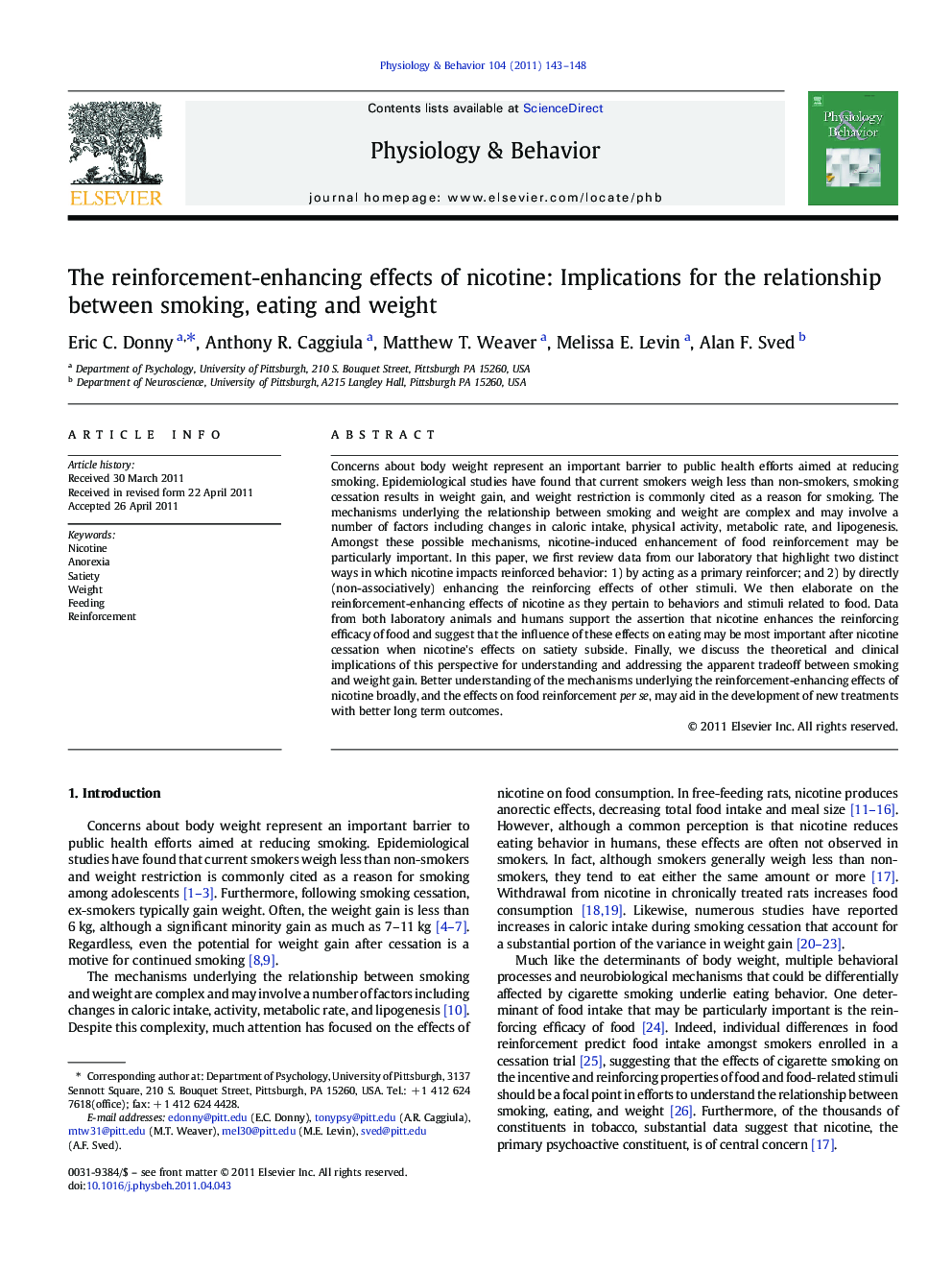| Article ID | Journal | Published Year | Pages | File Type |
|---|---|---|---|---|
| 2844591 | Physiology & Behavior | 2011 | 6 Pages |
Concerns about body weight represent an important barrier to public health efforts aimed at reducing smoking. Epidemiological studies have found that current smokers weigh less than non-smokers, smoking cessation results in weight gain, and weight restriction is commonly cited as a reason for smoking. The mechanisms underlying the relationship between smoking and weight are complex and may involve a number of factors including changes in caloric intake, physical activity, metabolic rate, and lipogenesis. Amongst these possible mechanisms, nicotine-induced enhancement of food reinforcement may be particularly important. In this paper, we first review data from our laboratory that highlight two distinct ways in which nicotine impacts reinforced behavior: 1) by acting as a primary reinforcer; and 2) by directly (non-associatively) enhancing the reinforcing effects of other stimuli. We then elaborate on the reinforcement-enhancing effects of nicotine as they pertain to behaviors and stimuli related to food. Data from both laboratory animals and humans support the assertion that nicotine enhances the reinforcing efficacy of food and suggest that the influence of these effects on eating may be most important after nicotine cessation when nicotine's effects on satiety subside. Finally, we discuss the theoretical and clinical implications of this perspective for understanding and addressing the apparent tradeoff between smoking and weight gain. Better understanding of the mechanisms underlying the reinforcement-enhancing effects of nicotine broadly, and the effects on food reinforcement per se, may aid in the development of new treatments with better long term outcomes.
Research highlights► Food reinforcement may underlie eating, especially in the absence of satiety. ► Nicotine acts through non-associative mechanisms to enhance reinforcement. ► The reinforcement-enhancing effects of nicotine generalize to food reinforcers. ► Addressing changes in food reinforcement may be important for cessation efforts.
